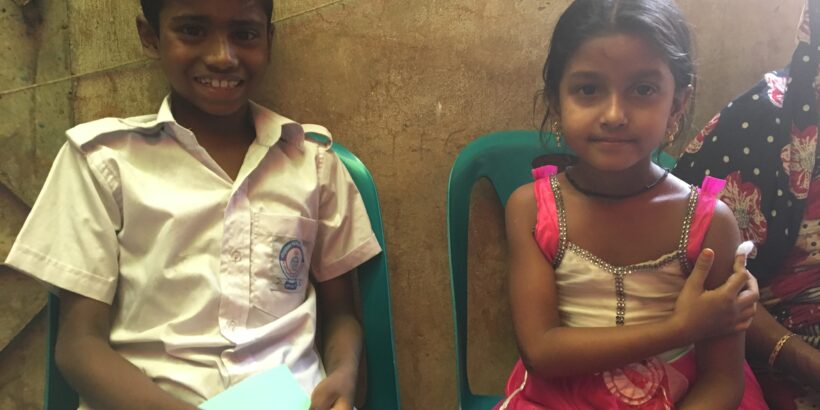Typhoid remains a major public health issue in many parts of the world. In Bangladesh, more than 1,100 cases of typhoid per 100,000 people occur each year, which is one of the highest typhoid burdens in the world. A recently published study assessed the antibody response induced after a single dose of typhoid conjugate vaccine (TCV) among Bangladeshi children aged between nine months and younger than sixteen years. Two years after vaccination, children who received TCV had significantly higher antibody responses compared to children in the control group, who received Japanese encephalitis (JE) vaccine. Understanding how long TCV-induced immune response persists is helpful information as decision-makers think about introducing the vaccine into routine immunization.
Immune response of TCV
This immunogenicity study builds upon results from the large cluster-randomized controlled efficacy trial conducted in Dhaka, Bangladesh, that found TCV to be 85% efficacious in children 9 months to younger than 16 years old. Participants in the study received the TCV or JE vaccine. The study team has followed a subset of these participants to measure antibody levels during a two-year period after vaccination. We observed a significantly higher level of antibody responses in the children who received TCV during the trial compared to those who received JE vaccine. This higher antibody level has persisted for two years after vaccination compared to before vaccination. The antibody responses remained relatively unchanged in participants who received the JE vaccine.
The study found that antibody levels declined over time across all age groups. This result is similar to what is seen and expected with other available vaccines. The study observed the highest decline among children younger than two years of age. Despite this decline, immune responses remained significantly higher than pre-vaccination during the study. This tells us that TCV is effective in protecting against typhoid for at least two years post-vaccination.
TCV is a strategic tool for typhoid prevention and control
The study results demonstrate that a single dose of TCV remains highly immunogenic and protective for at least two years; this is good news for policymakers considering TCV introduction. It will be important to continue following the study participants to gather more information on the duration of TCV protection and immune responses as time goes on. These data are an important measurement of potential TCV impact and can guide policymakers in their strategic consideration of TCV introduction.
Cover photo: Two participants from the TCV efficacy study in Bangladesh. Credit: icddr,b



